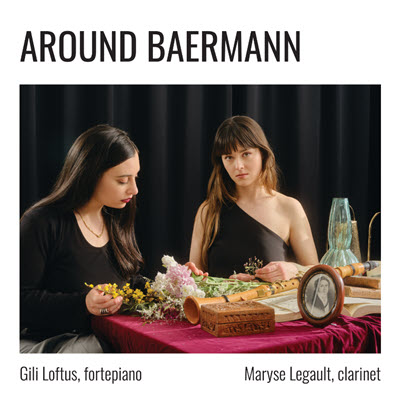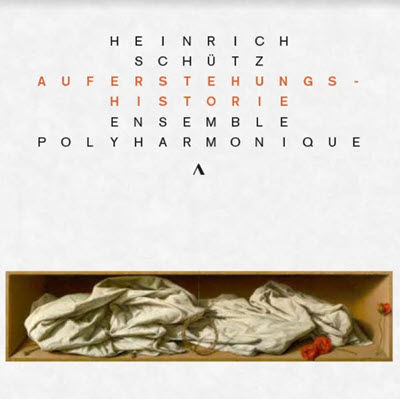by Jacob Jahiel
Published March 4, 2024
Around Baermann. Maryse Legault, historical clarinet, and Gili Loftus, fortepiano. Leaf Music LM265
Late Classical and early Romantic music has, with exceptions, traditionally served as the recent-most boundary for the field of early music. But for the clarinet, an instrument still in its adolescence in the decades around the turn of the 19th century, things were just starting to get interesting.

In an excellent new recording, Around Baermann, Montréal-based duo Maryse Legault (historical clarinet) and Gili Loftus (fortepiano) explore this crucial moment in the clarinet’s history through the music of familiar figures like Carl Maria von Weber and Felix Mendelssohnn, as well as the less familiar names of Caroline Schleicher-Krähmer (1794–1873) and Heinrich Joseph Baermann (1784–1847), the album’s main inspiration and namesake.
Baermann, a German clarinet virtuoso who occasionally wrote music, might be described as both a composer-performer and a composer’s performer. He charmed and dazzled the young Felix Mendelssohn, who would later compose two Konzertstücke for him, and inspired a number of works by Weber and Giacomo Meyerbeer, among others.
Two pieces by Weber bookend the album. The first, light fare serving as an inviting amuse-bouche, is a set of variations on a theme from his early opera, Silvana. The piece is, admittedly, not particularly compelling from a purely musical perspective — the variations themselves can be a bit cloying, although that’s Weber for you. Fortunately, this allows deserved attention to rest on Legault and Loftus, who exhibit utmost lyricism, charm, and an immaculate sense of timing. Weber’s Grand Duo Concertant offers far more depth, drama, and character, and the duo imparts a compelling sense of dialogue and fantasy.
In Baermann’s Introduction and Polonaise and, especially, Nocturne for Clarinet and Piano, Legault unleashes the expressive gamut of her instrument, channeling a true 19th-century virtuoso. The Sonata by then 15-year-old Mendelssohn relies more on lyricism and harmonic interest than exploiting the clarinet’s wide range of technical possibilities, and might therefore fall flat if played by a lesser performer. But Legault’s varied articulation and sensitivity, her ability to shape each note, allow the Sonata to reach — and perhaps even exceed — its full potential.
Schleiter-Krähmer’s Sonatina is both compact and lovely. She is the only composer on the album with whom Baermann had no direct contact, and in the liner notes Legault points out that, before her generation and to some extent during it, few women would have been afforded the option to play a woodwind instrument. In any event, her legacy as a composer, musician, and pedagogue — not to mention her fine music — provides more than sufficient cause for inclusion. The opening Larghetto is particularly appealing: Listen here for Legault’s delicately woven pianissimi.
Legault’s clarinet, crafted by Laura Schönherr in 2015, is a copy of one such instrument by Heinrich Grenser (1764–1813), a Dresden maker of significant renown. In the liner notes, Legault figures the original to have been made around 1810 — an elegant estimate as it is situated exactly 100 years after the first documented reference to the instrument in 1710. The historical copy possesses a sound that is far more textured, rich, and, frankly, rewarding than the glossy, almost disembodied quality of the modern version.
With Around Baermann, it is encouraging to hear historically informed performers wade well into 19th-century music — at least beyond the occasional Schubert sonata or Beethoven symphony. It is more encouraging still that it can be done to such great effect. Let there be more.
In a link to this album, Legault and Loftus opened EMA’s 2023 Emerging Artists Showcase, at Emmanuel Church in the City of Boston, with a performance of Weber’s Grand Duo Concertant.
Jacob Jahiel is a writer and violist da gamba living in Baltimore.




